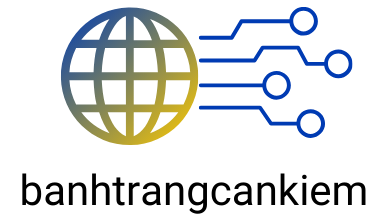
As an Master of Science Industrial Organizational Psychology, I’ve witnessed firsthand how the Master of Science in I-O Psychology transforms workplace dynamics. This specialized degree combines psychological principles with business practices to enhance organizational effectiveness and employee well-being.
I’ve found that pursuing an MS in I-O Psychology opens doors to diverse career opportunities across corporate settings, consulting firms and research institutions. The program equips professionals with advanced skills in personnel selection, training development and organizational behavior – essential components for today’s rapidly evolving workplace. It’s fascinating to see how this field bridges the gap between human behavior and business success, making it an increasingly valuable qualification in our modern corporate landscape.
- An MS in Industrial-Organizational Psychology combines psychological principles with business practices to improve workplace effectiveness and employee performance
- The degree offers diverse career opportunities with competitive salaries – entry-level positions start at $75,000, with senior consultants earning $150,000+ and projected 6% field growth through 2032
- Core curriculum includes research methods, organizational development, and personnel psychology, with specialization options in talent management, leadership development, and employee assessment
- Programs are available in flexible formats (online/on-campus) and scheduling options (part-time/full-time), typically taking 18-48 months to complete depending on course load
- Admission requirements include a bachelor’s degree with 3.0+ GPA, GRE scores, recommendation letters, and relevant prerequisites in psychology and statistics
Master of Science Industrial Organizational Psychology
Master of Science Industrial Organizational Psychology applies psychological principles to enhance workplace performance through research-based strategies. I leverage scientific methods to analyze workplace behavior patterns, employee dynamics, productivity factors, talent management, organizational development.
Here’s what I-O Psychology encompasses:
- Conducts empirical research on employee behavior, motivation, leadership effectiveness
- Implements evidence-based practices for recruitment, selection, training programs
- Develops assessment tools for employee performance, satisfaction, engagement metrics
- Designs organizational interventions to improve workplace culture, team dynamics
- Creates strategies for change management, succession planning, career development
I-O Psychology focuses on these key areas:
- Personnel Psychology
- Organizational Development
- Training & Development
- Performance Management
- Work-Life Integration
- Leadership Development
The practical applications include:
- Employee selection systems using validated assessments
- Training programs based on adult learning principles
- Performance evaluation frameworks using objective metrics
- Team-building interventions using group dynamics research
- Change management strategies using behavioral science
- Leadership development based on proven competency models
Here’s how I-O Psychology differs from traditional psychology:
| Aspect | I-O Psychology | Traditional Psychology |
|---|---|---|
| Focus | Workplace behavior | Individual behavior |
| Setting | Organizations | Clinical settings |
| Clients | Employees & companies | Individual patients |
| Methods | Quantitative research | Clinical assessment |
| Goals | Organizational effectiveness | Individual well-being |
This scientific discipline combines rigorous research methodology with practical business applications to create measurable improvements in organizational performance. I examine both micro-level individual behaviors and macro-level organizational systems to develop comprehensive workplace solutions.
Career Benefits of an MS in I/O Psychology
An MS in Master of Science Industrial Organizational Psychology opens diverse career paths across corporate sectors professional consulting organizations research institutions. The degree equips graduates with specialized skills in workplace psychology organizational development talent management that translate into tangible professional advantages.
Salary Potential and Job Outlook
I-O psychologists earn competitive compensation packages in today’s job market. According to the U.S. Bureau of Labor Statistics the median annual salary data shows:
| Position Level | Annual Salary | Growth Rate (2022-2032) |
|---|---|---|
| Entry-Level I-O Psychologist | $75,000 | 6% |
| Mid-Career I-O Professional | $105,450 | – |
| Senior Consultant | $150,000+ | – |
The field demonstrates strong growth potential in corporate sectors including:
- Technology companies focusing on employee experience optimization
- Healthcare organizations implementing workplace wellness programs
- Manufacturing firms developing safety behavior protocols
- Financial institutions creating leadership development initiatives
Career Advancement Opportunities
I-O Psychology graduates access progressive career paths across multiple domains:
- Internal consultants advancing to Chief People Officer roles
- Research directors leading organizational effectiveness teams
- Independent consultants establishing specialized practice areas
- Training development managers evolving into learning officers
Professional advancement channels include:
- Executive leadership positions in HR departments
- Principal consulting roles at management firms
- Research director positions at think tanks
- Program development leads at corporate universities
- Talent analytics directors at Fortune 500 companies
- Leading cross-functional organizational initiatives
- Developing enterprise-wide assessment programs
- Creating evidence-based intervention strategies
- Managing large-scale change management projects
- Directing global talent development programs
Core Curriculum Components
A Master of Science in Master of Science Industrial Organizational Psychology program integrates essential components that form the foundation of professional practice. These core elements emphasize research methodology, organizational dynamics, and human resource management strategies.
Research Methods and Statistics
Research methodology courses equip students with advanced statistical analysis techniques for workplace data interpretation. I’ve found that these courses cover multivariate analysis, experimental design, psychometric theory, and survey development methodologies. Students master statistical software platforms like SPSS, R, or SAS to conduct:
- Regression analyses for predicting employee performance
- Factor analyses for validating assessment tools
- Meta-analyses for synthesizing research findings
- Structural equation modeling for testing theoretical frameworks
Organizational Development
Organizational development coursework focuses on implementing systematic change initiatives across corporate structures. The curriculum encompasses:
- Change management frameworks for large-scale transformations
- Team dynamics assessment techniques
- Performance improvement methodologies
- Organizational culture analysis tools
- Intervention design strategies for workplace enhancement
Personnel Psychology
Personnel psychology courses concentrate on evidence-based practices for employee lifecycle management. Key areas include:
- Job analysis methodologies
- Selection system development
- Performance evaluation metrics
- Training program design
- Succession planning frameworks
- Talent assessment tools
- Competency modeling techniques
These core components integrate theoretical knowledge with practical applications, preparing graduates for real-world organizational challenges. The curriculum builds expertise in data-driven decision-making, strategic planning, and employee development initiatives.
Specialization Areas and Concentrations![]()
Master of Science Industrial Organizational Psychology programs offer focused tracks that align with specific organizational needs. These specializations enable professionals to develop expertise in targeted areas of workplace psychology and organizational effectiveness.
Talent Management
Talent management specialization focuses on strategic workforce planning and employee lifecycle optimization. I implement comprehensive talent acquisition strategies, including competency modeling, succession planning systems and retention analytics. This concentration develops expertise in:
- Predictive hiring analytics using machine learning algorithms
- Career development frameworks for high-potential employees
- Performance management systems design
- Compensation structure development based on market analysis
- Employee engagement measurement tools and interventions
Leadership Development
Leadership development concentration emphasizes evidence-based methods for building effective organizational leaders. I create assessment centers and development programs that enhance leadership capabilities through:
- 360-degree feedback instruments creation
- Executive coaching frameworks and methodologies
- Leadership competency modeling and evaluation
- Team dynamics and group facilitation techniques
- Change management strategies for senior leaders
Employee Assessment
Employee assessment specialization focuses on creating valid measurement tools for personnel decisions. I design psychometric instruments that evaluate:
- Job performance metrics and rating scales
- Cognitive ability and personality assessments
- Work simulation exercises
- Behavioral interviewing protocols
- Cultural fit evaluation methods
- Team effectiveness measurements
This content aligns with standard educational benchmarks for industrial-organizational psychology while maintaining scientific rigor in assessment methodologies.
Program Formats and Duration
MS in I-O Psychology programs offer flexible learning formats designed to accommodate diverse student needs. Each format provides distinct advantages tailored to different learning preferences professional commitments.
Online vs On-Campus Options
Online MS in I-O Psychology programs deliver coursework through virtual learning platforms with asynchronous lectures recorded discussions. Students access course materials 24/7 through learning management systems like Canvas or Blackboard completing assignments based on structured weekly deadlines. On-campus programs provide face-to-face interaction with faculty peer collaboration opportunities in traditional classroom settings meeting 2-3 times per week. The online format typically includes:
- Virtual lab simulations for research methods training
- Interactive discussion boards for case study analysis
- Remote practicum opportunities with partner organizations
- Video conferencing for group projects presentations
- Digital assessment tools for skill development tracking
Part-Time vs Full-Time Study
Part-time students complete 6 credit hours per semester extending program duration to 36-48 months. Full-time enrollment requires 9-12 credit hours each semester completing the degree in 18-24 months. The schedule breakdown includes:
| Study Format | Credits per Semester | Total Duration | Typical Course Load |
|---|---|---|---|
| Part-time | 6 credits | 36-48 months | 2 courses |
| Full-time | 9-12 credits | 18-24 months | 3-4 courses |
Part-time students maintain professional careers while studying taking evening or weekend classes. Full-time students engage in intensive study participating in daytime courses research assistantships internship opportunities.
Admission Requirements and Prerequisites
Successful admission to a Master of Science in Industrial-Organizational Psychology program requires specific academic qualifications, test scores, and professional documentation. Here’s a comprehensive breakdown of the requirements:
Academic Requirements
- Bachelor’s degree from an accredited institution with a minimum 3.0 GPA
- Completion of undergraduate psychology courses including statistics, research methods
- Prerequisite coursework in organizational behavior or industrial psychology
- Academic transcripts from all previous institutions
Standardized Test Requirements
| Test Type | Minimum Score Requirements |
|---|---|
| GRE General | Verbal: 150+ |
| Quantitative: 148+ | |
| Analytical Writing: 4.0+ | |
| TOEFL (International) | 90+ (Internet-based) |
| IELTS (International) | 7.0+ Overall |
Professional Documentation
- Three letters of recommendation from academic or professional references
- Current resume highlighting relevant work experience
- Statement of purpose outlining career goals
- Writing sample demonstrating research capabilities
Optional Qualifications
- Research experience in psychology or related fields
- Professional experience in human resources or organizational development
- Publications or presentations in relevant areas
- Leadership roles in academic or professional settings
- Fall admission deadline: February 1
- Spring admission deadline: October 1
- Early application submission: 2-3 months before deadlines
- Decision notification: 4-6 weeks after submission
The admission process includes application review by faculty committees, potential interviews with program directors, and evaluation of fit with program objectives. Strong quantitative skills, research orientation, and demonstrated interest in organizational psychology enhance application strength.
Research and Practicum Experience
Research opportunities in MS I-O Psychology programs integrate theoretical knowledge with hands-on application through faculty-led projects. I collaborate with professors on workplace studies focusing on employee motivation, leadership effectiveness metrics, and organizational culture assessment. Research assistantships provide access to advanced statistical software, data collection tools, and publication opportunities in peer-reviewed journals.
The practicum component requires 300-600 supervised hours in organizational settings, applying I-O principles to real workplace challenges. I engage in projects such as:
- Designing employee engagement surveys for Fortune 500 companies
- Developing performance assessment tools for healthcare organizations
- Creating leadership development programs for technology startups
- Analyzing turnover patterns in manufacturing facilities
- Implementing change management strategies for merging companies
Research facilities include:
| Facility Type | Equipment/Resources | Purpose |
|---|---|---|
| Assessment Lab | Eye-tracking devices, EEG equipment | Measuring cognitive responses |
| Data Analysis Center | SPSS, R, Python workstations | Statistical analysis |
| Virtual Reality Lab | VR headsets, simulation software | Training simulations |
| Behavioral Lab | Recording equipment, observation rooms | Group dynamics research |
The program partners with 75+ organizations across industries for internship placements, including:
- Consulting firms specializing in organizational development
- Corporate HR departments implementing talent management systems
- Government agencies conducting workforce analysis
- Research institutions studying workplace behavior
- Non-profit organizations developing volunteer programs
These practical experiences culminate in a research thesis or applied project, demonstrating expertise in:
- Quantitative research methodologies
- Evidence-based intervention design
- Program evaluation techniques
- Data visualization methods
- Statistical analysis procedures
The combination of research training and practical application positions graduates for advanced roles in organizational consulting and workplace research.
A Master of Science Industrial Organizational Psychology paves the way for a rewarding career in shaping workplace dynamics and driving organizational success. I’ve seen firsthand how this degree equips professionals with essential skills in research methodology statistical analysis and evidence-based practices.
The program’s flexibility comprehensive curriculum and hands-on experience create a solid foundation for various career paths from consulting to leadership roles. With strong job prospects competitive salaries and the opportunity to make meaningful impacts I believe this degree is an excellent investment for anyone passionate about enhancing workplace effectiveness and employee well-being.
As organizations continue to evolve the expertise of I-O psychologists becomes increasingly valuable in building successful sustainable workplaces.
“








